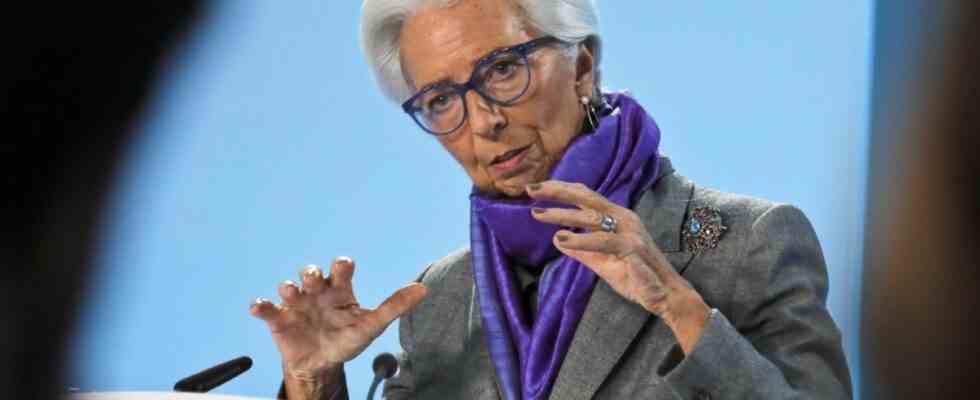The European Central Bank is continuing its tight monetary policy at an undiminished pace, although inflation dynamics in the euro zone have recently eased slightly. The currency watchdogs increased the key interest rate on Thursday by 0.5 percentage points to three percent – the highest level since 2008. The ECB also announced a further interest rate hike for March. At 15,400 points, the Dax reached its best price since mid-February 2022. The euro cost more than 1.10 US dollars – the common currency has not been this strong for nine months.
The central bank is walking a tightrope: on the one hand, they want to keep inflation down by resolutely raising interest rates, while on the other hand, they want to avoid overly high key interest rates causing the economy to stall. So far the strategy seems to be working. At the beginning of the year, the inflation rate in the euro zone fell further to 8.5 percent. In December inflation was still 9.2 percent, in November it was 10.1 percent.
At the same time, the euro zone seems to have averted the risk of a recession. The International Monetary Fund (IMF) expects growth of 0.7 percent for this year. Europe has adapted to the higher energy costs faster than expected. Overall, given the effects of the Ukraine war, Europe is proving to be “more resilient than expected,” according to the IMF.
But even if the inflation rate falls, prices remain high and continue to rise, which is a particular burden for low-income households. At the same time, the now higher interest rates on savings accounts are nowhere near enough to offset the high inflation. In addition, the so-called core inflation, in which the volatile energy, food, alcohol and tobacco prices are deducted, is still at 5.2 percent, the highest value since the founding of monetary union.
The ECB is aiming for an inflation rate of two percent in the medium term
The high level of core inflation is fueling concerns that the price surge could take hold in the medium term. The ECB is aiming for an inflation rate of two percent in the medium term. However, the central bank itself is forecasting that the inflation rate will be 6.3 percent in the coming year. 3.4 percent are expected for 2024.
The American central bank, the Federal Reserve, is also continuing to raise interest rates – on Wednesday the currency watchdogs added 0.25 percentage points. That was a much smaller rate hike than many times before. The Bank of England raised interest rates by 0.5 percentage points to four percent on Thursday. It was the tenth rate hike in a row. In Great Britain, the inflation rate is 10.5 percent.
With their rate hikes, the central bankers also want to prevent record inflation from getting stuck in people’s minds. The more consumers doubt that inflation will return to normal levels in the medium term, the more price increases could become psychologically entrenched. Companies would then possibly demand higher prices for their products based on their inflation expectations – and employees in turn would demand higher wages. There is a risk of an inflationary spiral.

